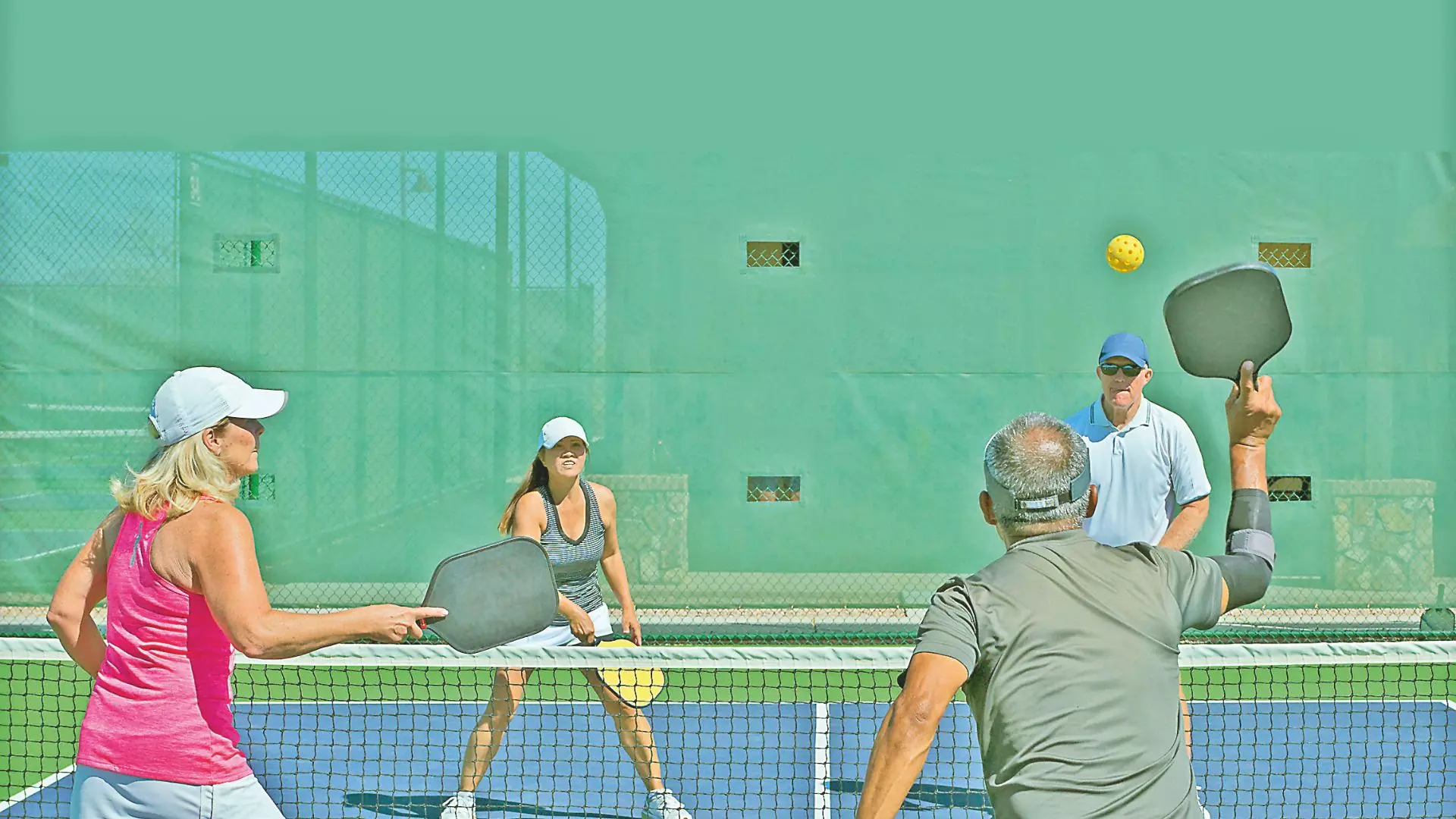Smash your way to better health
If the Olympics have scintillated your engrossment, pick up a racquet. Net sports can also be a key to unlocking a longer life

Racquet sports stand at the zenith of activities that boost longevity. 61-year-old athlete, Ni Xia Lian, scripted history at the Paris 2024 Olympic Games, becoming the oldest player to win a table tennis match, with a career spanning over 40 years, including two world championships. Similarly, Zeng Zhiying, another table tennis sensation, made her Olympic debut at 58.
Among racquet sports, tennis shows up as the healthiest. Studies reveal that playing tennis can add almost 10 years to your life — 9.7 years, to be precise. Close behind is badminton, which gives you an extra 6.2 years on average. A simple game with friends could mean more than just fun — it could give you more time in life.
Tips to be a pro
Unearthing some tips to practise it at first, Rakesh Khanna, 66, a retired banker and Senior Tennis Tournament New Chandigarh winner adds, “For older adults taking up racquet sports for the first time, a few weeks of light jogging, stretching, and yoga should precede joining the game. Table tennis, pickleball, and badminton are less injury-prone than tennis due to the lighter racquets and smaller courts.”
An adrenaline rush to look forward to
It’s not just about the cardio. Tennis, squash, and table tennis also push your body and mind to work together, improving your balance, reflexes, and mental focus.
Mohit Talreja, Head of Sports Events at the Institute of Sports Science & Technology, spotlights badminton’s impact on his mood and mental well-being. “Much like swimming, it is a refreshing and invigorating activity that instantly lifts my spirits. The fast-paced, continuous movement of the game brings a thrilling dynamic that keeps me fully engaged and present in the moment. It’s an adrenaline rush that I genuinely look forward to. The thrill of chasing the shuttle, combined with the competitive nature of the sport, makes it a perfect outlet for relieving stress and re-energising both my body and mind,” he says.
Sports physiotherapist, Dr Priyanka Das shares, “The strategic thinking, decision-making, and hand-eye coordination required in these sports help maintain cognitive function. Regular play can slow down dementia. Additionally, racquet sports trigger the release of endorphins. Social interaction during play combats isolation. The focus and perseverance developed in these sports fortify mental resilience, helping older athletes manage existential challenges.”
Priyanka also adds that local tournaments and grassroots programmes make professional coaching facilities more accessible to children.
Ujwal Deole, Co-Founder and Chief Operating Officer at KheloMore suggests incorporating low-impact activities like pickleball, which is gentler on the joints, to ensure continued physical activity without overburdening the body. “Focusing on flexibility and balance is crucial for sports like tennis and badminton, which require quick reflexes and explosive movements. Regular stretching, light resistance training, and ensuring adequate rest are key practices for maintaining longevity in any racquet sport.”
A boost to endorphins
Nearly every muscle gets involved — from your legs to your core, arms, and back — helping you stay strong as you grow older. Plus, the energy you burn during a match is no small feat; you can burn 400 to 600 calories in just one hour of tennis. Dr Aijaz Ashai, Chairman of IAP West Zone for Innovation Committee says, “The increase of stress leads to cognitive decline. Playing tennis, squash, badminton, table tennis, and others helps release strain, boost endorphin levels, and improve confidence, allowing individuals to navigate ‘getting older’ as one would call it. Cognitive engagement helps keep the brain active and sharp.”
Decreases hypertension
What’s good for the heart is good for the brain, and the exercise you get playing racquet sports undoubtedly helps the heart.
As per Optima Clinics, a private healthcare facility located in Cottingham, UK, it decreases plaque buildup in the arteries, which you don’t want; it decreases hypertension, which is often a result of high blood pressure; it tends to decrease A1C, which is a marker for glucose metabolism for type 2 diabetes.
Talking from experience in tennis, Rakesh shares, “Since my retirement in 2018, I’ve been playing regularly, six days a week. Compared to my friends and relatives of the same age who don’t play any sport, I can confidently say that my overall health and vitals are considerably better. I still compete with players 20-30 years younger than me, and in no way am I slower than them. I see most people my age undergoing procedures like cardiac stents, bypass surgeries, or dealing with diabetes. Tennis has kept me safe from these.”
